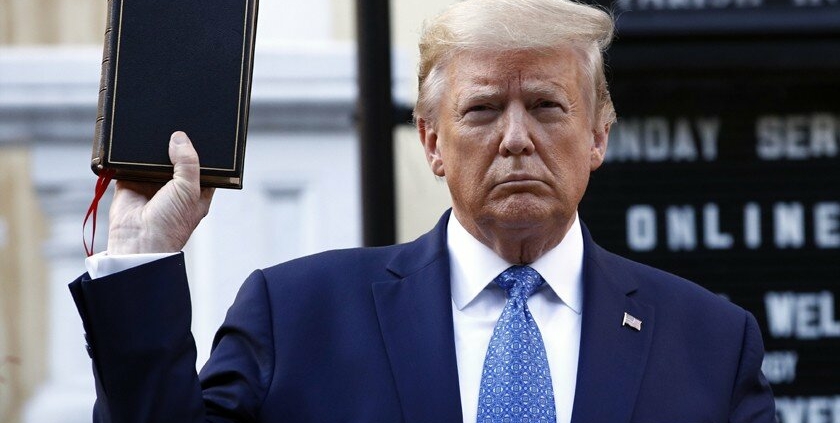Holy Deception!
I remember when we learned that our nation’s leader mischaracterized the severity of Covid-19. He justified the deception by citing the need to preserve calm and safeguard the economy. Some supported his approach. But Torah lays bare the difficulty in distinguishing between craven dishonesty and justifiable deception. Judaism instructs when to support standards of truth-telling.

In parshat Toldot, Torah explores two instances of deception which find justification both in circumstance and rabbinic interpretation. Isaac and Rebekah endured the hardship of famine by taking up residence in Gerar. In a ploy previously used by Abraham, Isaac presented Rebekah as his sister, hoping that his untrustworthy hosts would not kill him to take his wife. With survival in mind, Isaac’s falsehood is justified under the Jewish value of pikuach nefesh.

Jacob blessing Isaac
A more perplexing episode of deception soon follows. Jacob seeks his father’s blessing of the firstborn and poses as Esau. The ruse works, Jacob gets his father’s blessing, and Esau is bereft. Rabbinic interpreters cite the necessity of Jacob, the virtuous son, to undertake the leadership mantle instead of Esau, the uncultivated son. Absent Jacob’s intervention, the Jewish future would have been jeopardized by the untamed Esau.
With this biblical precedent of justifiable deception, we might wonder about the limits to which lying can be employed. How might a politician, government official or religious authority deceive the public in pursuit of a justified result? What are the metrics to determine if deception is justified? When is justification a subjective question? How do we refute belief-driven speciousness? The current pandemic offers a good example.
Think of the communities that continued to gather in churches and synagogues despite the danger. Religious leaders deceived their congregations, diminishing the danger of covid-19 by touting the need for in-person communal prayer. Along with bars and gyms, churches and synagogues have been the primary hotspots. Merely by leading a community at a house of worship, leaders deceived for the sake of what they considered to be a holy purpose.
Deception works its way through society’s strata. To succeed, the deception’s target must be inclined toward acquiescence and acting upon the reckless belief. Blaming leadership does not suffice. Personal responsibility plays a role. Cult-like devotion gives authority to and supports deceptive leaders. These times call for individual empowerment and putting willpower to the highest test.
With another wave of Covid-19 upon us, deception endangers us all. No patina of holiness attaches. In the long slog toward a post-Covid world, these winter months require resisting illusions and short-term temptations. Judaism teaches us to play the long game with daily checks on our exercise of free will and regard for honesty.
Rabbi Evan Krame






 Evan J. Krame was ordained as a rabbi by the
Evan J. Krame was ordained as a rabbi by the